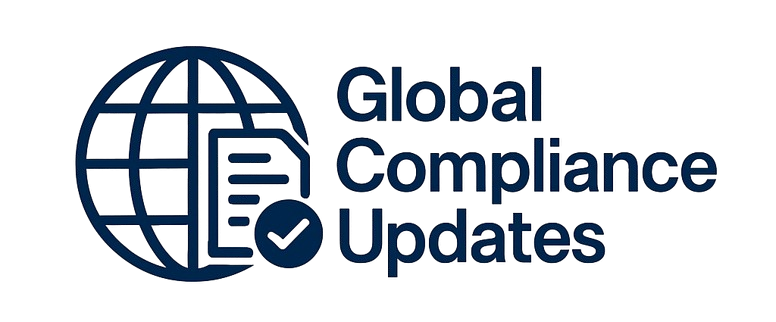How well you communicate that information is critical to getting management’s acceptance of your findings and their agreement with your recommendations. A well-written audit report adds value to your clients by providing information that is :
- Accurate
- Objective
- Clear
- Concise
- Constructive
- Complete
- Timely
In addition to audit reports, these elements can apply to all kinds of writing including :
- Executive summaries
- Fraud investigations
- Consulting reports
- Memos
- General correspondence
WHY SHOULD YOU ATTEND?
The objective of any report is to provide important information to management in the area reviewed. It represents the end result of weeks of reviews, analyses, interviews, and discussions. The quality of that report will have an impact on how well the report is understood and accepted. A report with the best information and recommendations may not be acted upon if the report is poorly written and hard to understand. Poor quality reports can result in management:
- Misunderstanding the information and making the wrong decisions
- Getting too little information and making poor decisions
- Getting too much information and wasting valuable time in making decisions
Ideally, the audit report should provide management with enough information to understand:
- What was done
- What was found
- What management should do
LEARNING OBJECTIVES
The objective of this webinar is to:
1 . A review of the audit standards related to audit report quality
2 . A detailed review of each of the seven report quality elements
- Accurate
- Objective
- Clear
- Concise
- Constructive
- Complete
- Timely
3 . Various quality report exercises
WHO WILL BENEFIT?
- Chief Audit Executives
- Audit Directors
- Audit Supervisors
- Audit Managers
- Staff Auditors
- Government Auditors
- Compliance Auditors
- Internal Control Specialists
- Public Accountants
- Accounting Analysts
- Business Analysts
- Quality Control Specialists
The objective of any report is to provide important information to management in the area reviewed. It represents the end result of weeks of reviews, analyses, interviews, and discussions. The quality of that report will have an impact on how well the report is understood and accepted. A report with the best information and recommendations may not be acted upon if the report is poorly written and hard to understand. Poor quality reports can result in management:
- Misunderstanding the information and making the wrong decisions
- Getting too little information and making poor decisions
- Getting too much information and wasting valuable time in making decisions
Ideally, the audit report should provide management with enough information to understand:
- What was done
- What was found
- What management should do
The objective of this webinar is to:
1 . A review of the audit standards related to audit report quality
2 . A detailed review of each of the seven report quality elements
- Accurate
- Objective
- Clear
- Concise
- Constructive
- Complete
- Timely
3 . Various quality report exercises
- Chief Audit Executives
- Audit Directors
- Audit Supervisors
- Audit Managers
- Staff Auditors
- Government Auditors
- Compliance Auditors
- Internal Control Specialists
- Public Accountants
- Accounting Analysts
- Business Analysts
- Quality Control Specialists
Speaker Profile
 Jonnie Keith
Jonnie Keith
Jonnie Keith has been in auditing for over 50 years. He retired in 2012 as the Assistant General Manager (AGM) of Internal Audit with the Metropolitan Atlanta Rapid Transit Authority (MARTA) in Atlanta, Ga. He served in that capacity for over 10 years and was responsible for administering the overall audit activities. In this position, he was also responsible for the review and approval of all internal audit correspondence including audit reports, executive summaries, internal and external correspondence, etc.Prior to that, he worked at MARTA as the Operational Audit Manager and Senior Contract Compliance Auditor. He also worked at Norfolk …
Upcoming Webinars


Effective Communication: Ensuring Clarity, Accountability a…

2-Hour Virtual Seminar on Workplace Investigations 101: How…

Employers Should Prepare for Immigration Raids in 2026! Thi…

AI for Excel Professionals: Enhancing Productivity with Cha…

The Importance of the first 5 seconds when presenting

Negotiating Skills For Professional Results - Winning Strat…

Workplace Behavior in 2026: Tackling Conflicts and Incivili…

FDA Recommendations for Artificial Intelligence/Machine Lea…

Validation Statistics for Non-Statisticians

Bootcamp for New Managers and Supervisors: Develop These Es…


Interactive dashboards & analytics in Excel


Enhancing Project Management with Storytelling Techniques

4-Hour Workshop on Data Simplified: Sorting and Filtering, …

Creating Your 2026 Marketing Strategy

The Language of Leadership: Is Your Communication Style As …

ChatGPT for Innovative Business Advisory Services for Accou…


Utilizing A Proven Process When Conducting Sensitive, Inter…

How to Write Procedures to Avoid Human Errors

Human Factors Usability Studies Following ISO 62366 and FDA…

Why EBITDA Doesn't Spell Cash Flow and What Does?

Mastering DAX Patterns in the Era of AI & Copilot

Establishing Appropriate Quality Metrics and Key Performanc…


IRS Form 1099 Reporting: Compliance Requirements

FDA QMSR Explained: How the QMSR Replaces the QSR

How to Manage the Legal Landmine of the FMLA, ADA and Worke…

Understanding EBITDA – Definition, Formula & Calculation

Tattoos, hijabs, piercings, and pink hair: The challenges …

FDA Compliance And Laboratory Computer System Validation

Medical Device Hazard analysis following ISO 14971




Excel Spreadsheets; Develop and Validate for 21 CFR Part 11…

Excel + AI: The Smart User's Guide to Faster, Easier Work w…
